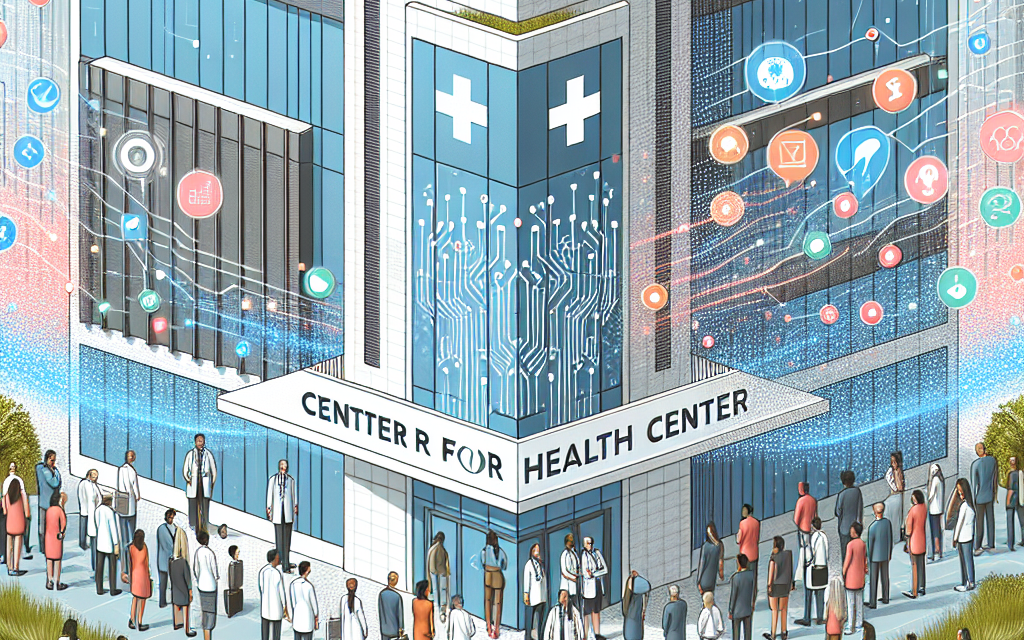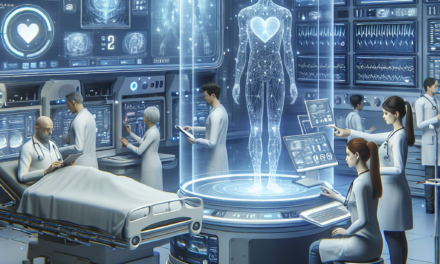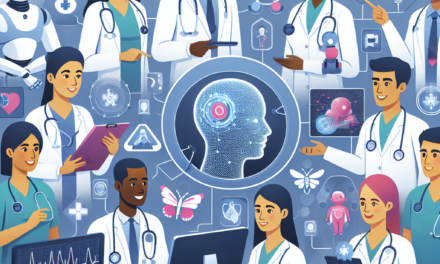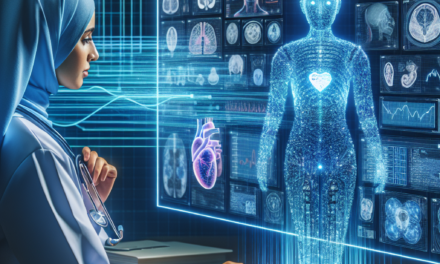Mount Sinai Health Launches Innovative Center for AI and Human Health
In an era where technology is rapidly transforming the landscape of healthcare, Mount Sinai Health has taken a significant step forward by launching its innovative Center for AI and Human Health. This initiative aims to harness the power of artificial intelligence (AI) to improve patient outcomes, enhance clinical decision-making, and streamline healthcare operations. This article delves into the various facets of this groundbreaking center, exploring its objectives, methodologies, and potential impact on the healthcare industry.
1. The Vision Behind the Center for AI and Human Health
The establishment of the Center for AI and Human Health at Mount Sinai Health is rooted in a vision to integrate advanced technology with human-centric healthcare. The center aims to bridge the gap between AI capabilities and clinical practice, ensuring that technological advancements translate into tangible benefits for patients and healthcare providers alike.
One of the primary goals of the center is to develop AI-driven tools that can assist clinicians in making more informed decisions. By analyzing vast amounts of patient data, AI algorithms can identify patterns and predict outcomes, enabling healthcare professionals to tailor treatments to individual patients. This personalized approach not only enhances the quality of care but also improves patient satisfaction and engagement.
Moreover, the center seeks to foster collaboration between technologists, clinicians, and researchers. By bringing together experts from diverse fields, Mount Sinai aims to create a multidisciplinary environment that encourages innovation and accelerates the development of AI applications in healthcare.
2. Key Areas of Focus for AI Implementation
The Center for AI and Human Health will concentrate on several key areas where AI can significantly impact healthcare delivery. These areas include diagnostics, treatment planning, patient monitoring, operational efficiency, and research advancements.
- Diagnostics: AI algorithms can analyze medical images, lab results, and patient histories to assist in diagnosing diseases more accurately and swiftly. For instance, deep learning models have shown promise in detecting conditions such as cancer from radiological images with a level of precision that rivals human experts.
- Treatment Planning: By leveraging predictive analytics, AI can help clinicians devise personalized treatment plans based on a patient’s unique genetic makeup and health history. This approach is particularly beneficial in oncology, where treatment responses can vary significantly among individuals.
- Patient Monitoring: Wearable devices and remote monitoring tools powered by AI can track patients’ vital signs and alert healthcare providers to any concerning changes. This proactive approach can lead to early interventions and reduce hospital readmissions.
- Operational Efficiency: AI can streamline administrative tasks, such as scheduling appointments and managing patient records, allowing healthcare providers to focus more on patient care rather than paperwork.
- Research Advancements: The center will also focus on using AI to analyze clinical trial data and identify potential new therapies, accelerating the pace of medical research and innovation.
3. Collaborations and Partnerships
To maximize the impact of the Center for AI and Human Health, Mount Sinai Health is actively seeking collaborations with technology companies, academic institutions, and other healthcare organizations. These partnerships are crucial for sharing knowledge, resources, and expertise in the field of AI.
For example, collaborations with tech giants like Google and IBM have already yielded promising results in developing AI algorithms for medical imaging and predictive analytics. By leveraging the computational power and data resources of these companies, Mount Sinai can enhance its research capabilities and accelerate the development of AI applications.
Additionally, partnerships with academic institutions allow for the integration of cutting-edge research into clinical practice. By working with universities that specialize in AI and machine learning, Mount Sinai can stay at the forefront of technological advancements and ensure that its initiatives are grounded in the latest scientific findings.
Furthermore, the center aims to engage with regulatory bodies and policymakers to address the ethical and legal implications of AI in healthcare. By participating in discussions about data privacy, algorithmic bias, and patient consent, Mount Sinai can help shape the future of AI in a way that prioritizes patient safety and equity.
4. Challenges and Ethical Considerations
While the potential benefits of AI in healthcare are immense, the implementation of these technologies also presents several challenges and ethical considerations that must be addressed. The Center for AI and Human Health is committed to navigating these complexities to ensure responsible AI use.
- Data Privacy: The use of AI in healthcare often requires access to sensitive patient data. Ensuring that this data is protected and used ethically is paramount. The center will implement robust data governance frameworks to safeguard patient information and comply with regulations such as HIPAA.
- Algorithmic Bias: AI algorithms can inadvertently perpetuate biases present in the training data, leading to disparities in care. The center will prioritize the development of fair and unbiased algorithms by employing diverse datasets and conducting regular audits of AI systems.
- Transparency: Clinicians and patients must understand how AI-driven recommendations are made. The center will advocate for transparency in AI algorithms, ensuring that healthcare providers can explain AI-generated insights to patients in an understandable manner.
- Accountability: Determining accountability in cases where AI systems make errors is a complex issue. The center will work on establishing clear guidelines for accountability, ensuring that healthcare providers remain responsible for patient care decisions.
- Patient Consent: Patients should be informed about how their data is used in AI applications. The center will develop protocols for obtaining informed consent, ensuring that patients are aware of the implications of their data being used for AI research and applications.
5. Future Prospects and Impact on Healthcare
The launch of the Center for AI and Human Health at Mount Sinai Health marks a significant milestone in the integration of technology and healthcare. As the center progresses, it is poised to make substantial contributions to the field, with far-reaching implications for patients, providers, and the healthcare system as a whole.
One of the most promising prospects is the potential for improved patient outcomes. By leveraging AI to enhance diagnostics, treatment planning, and patient monitoring, healthcare providers can deliver more effective and personalized care. This shift towards precision medicine is likely to lead to better health outcomes and increased patient satisfaction.
Moreover, the center’s focus on operational efficiency can help alleviate some of the burdens faced by healthcare providers. By automating administrative tasks and streamlining workflows, clinicians can dedicate more time to patient care, ultimately improving the overall quality of healthcare delivery.
In addition, the center’s commitment to research advancements can accelerate the development of new therapies and treatment modalities. By harnessing AI to analyze vast datasets, researchers can identify novel insights that may lead to breakthroughs in medical science.
As the Center for AI and Human Health continues to evolve, it will serve as a model for other healthcare organizations looking to integrate AI into their practices. The lessons learned and innovations developed at Mount Sinai can inspire similar initiatives across the globe, driving a broader transformation in the healthcare landscape.
Conclusion
The launch of the Center for AI and Human Health at Mount Sinai Health represents a pivotal moment in the intersection of technology and healthcare. By focusing on key areas such as diagnostics, treatment planning, patient monitoring, operational efficiency, and research advancements, the center aims to harness the power of AI to improve patient outcomes and enhance the overall quality of care.
Through strategic collaborations, a commitment to ethical considerations, and a focus on transparency and accountability, Mount Sinai is positioning itself as a leader in the responsible implementation of AI in healthcare. As the center continues to innovate and evolve, it holds the potential to transform the healthcare landscape, paving the way for a future where technology and human health are seamlessly integrated.
In summary, the Center for AI and Human Health is not just about technology; it is about enhancing the human experience in healthcare. By prioritizing patient-centered care and fostering collaboration among diverse stakeholders, Mount Sinai Health is setting a precedent for how AI can be effectively and ethically utilized to improve health outcomes for all.





